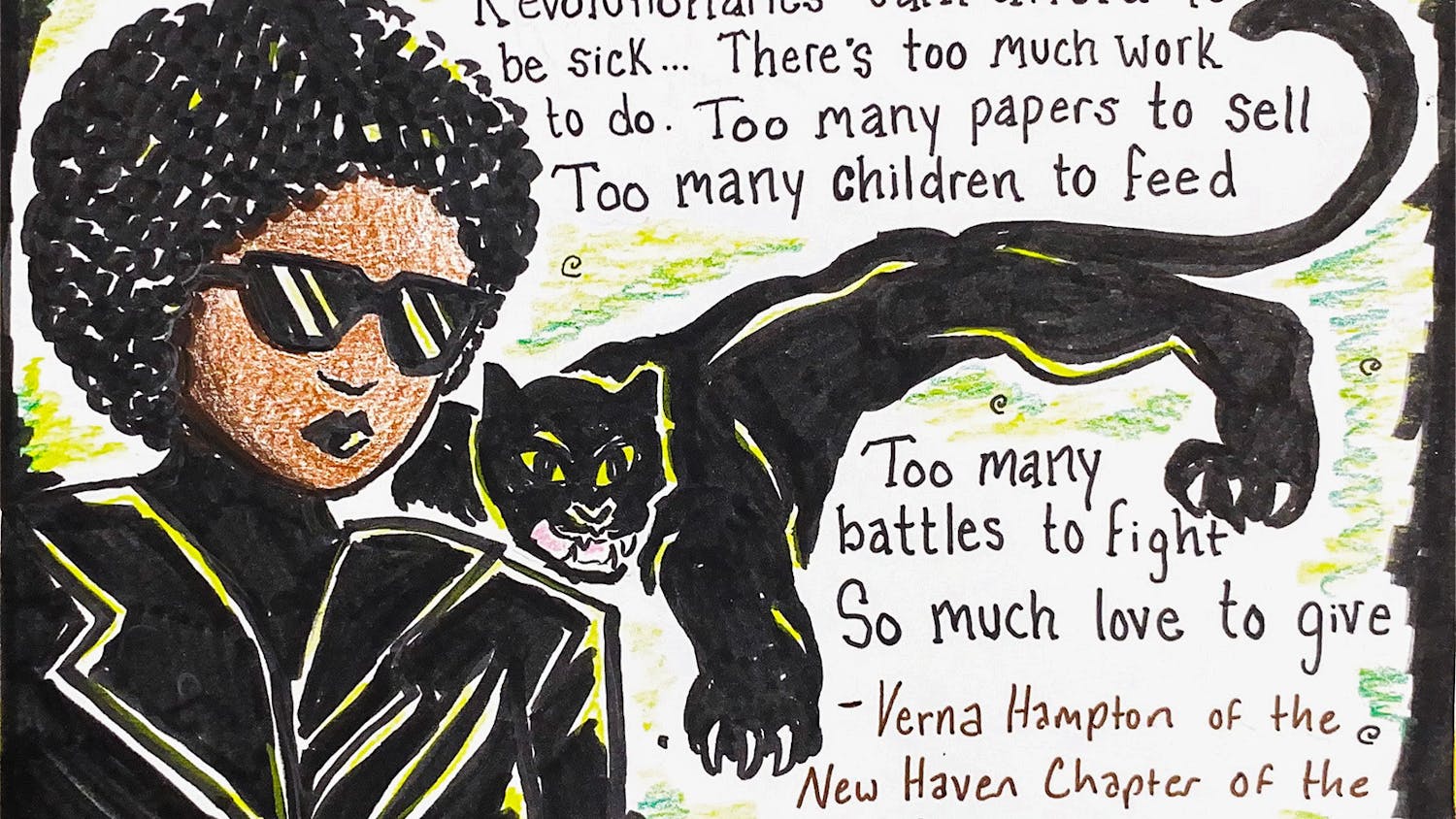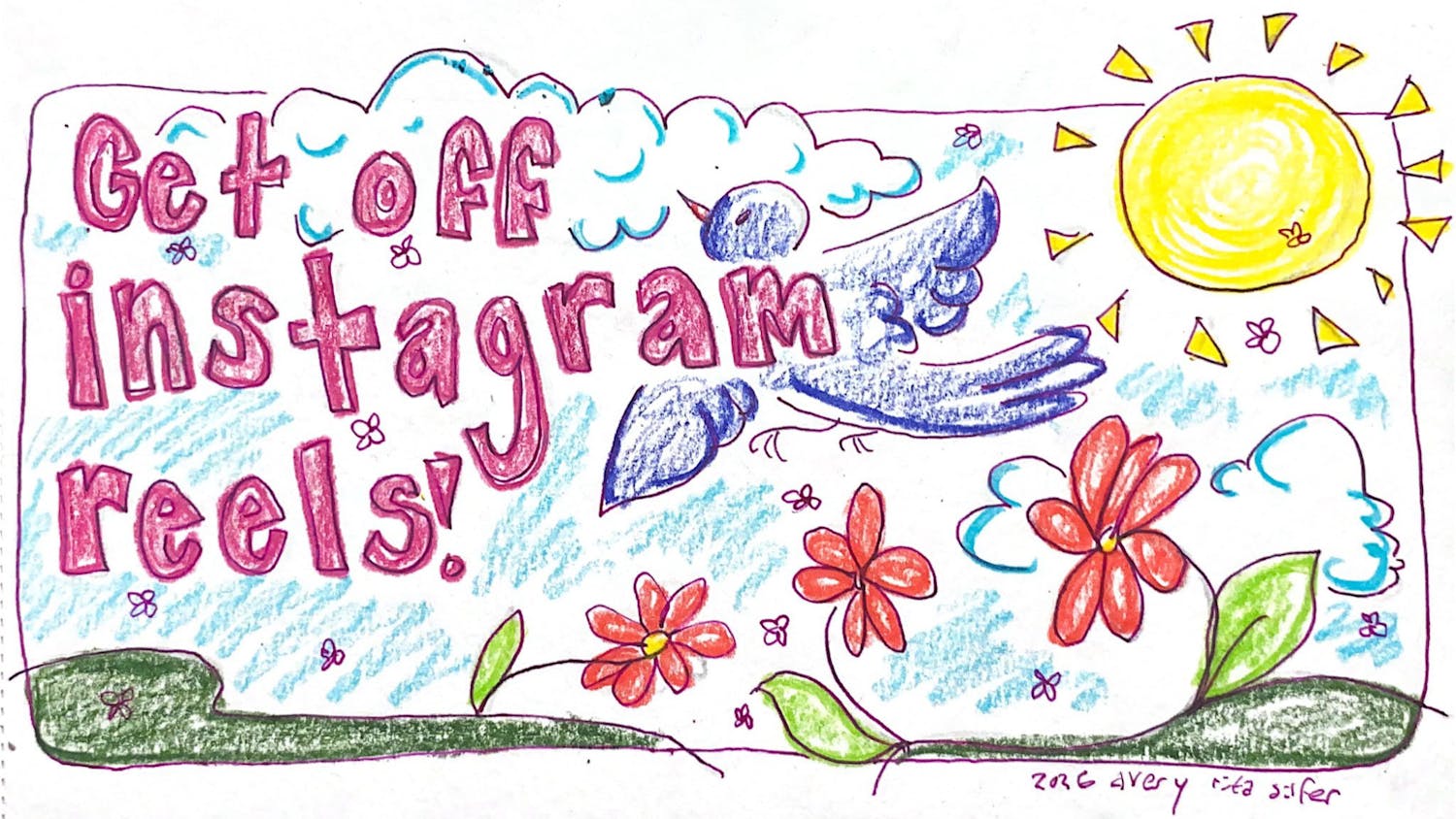University of New Mexico students and faculty gathered on Wednesday, Feb. 19 in the Student Union Building Ballrooms to celebrate 50 years since the Native American Studies (NAS) department's founding.
In honor of its anniversary, NAS hosted its 16th annual Viola F. Cordova Symposium, which informed on the historical development of NAS, honored indigenous students and staff and promoted the cultural significance of Native American education.
Tiffany Lee, the department chair with affiliations to the Diné and Lakota tribes, emceed the event.
Governor David Toledo from the Pueblo of Jemez kickstarted the six-hour event by inviting everyone in attendance to join him in an opening prayer in his native language. He was followed by Emmet Yepa, a NAS student alumni, who performed an honor song to "wish everyone a great day."
Before taking the stage, Yepa iterated that the Native American Studies department changed his life during his time as an undergraduate at UNM.
UNM President Garnett Stokes briefly recounted the progressive history and significance of NAS, from its 1970 conception as a humble program at the behest of UNM's Kiva Club to a full-fledged department that offers a Master of Arts, Bachelor of Arts, an Online Bachelor of Arts and a minor degree.
"Over the last half a century, the Native American Studies program has made UNM a richer place, a smarter place and a more culturally diverse place," Stokes said. "We at UNM, across New Mexico and across the country are looking to see just what the next 50 years will bring."
Stokes also acknowledged the University's physical placement on land that once belonged to tribal communities of the Sandia and Isleta Pueblos.
"We honor this part of our unique heritage, and we honor our Native American students from tribes across the nation who bring their stories, experiences and spirit to our University," she said.
UNM Provost James Holloway discussed the program's impressive statistics — including over 200 graduates with bachelors and minors degrees — as well as its rare quality of having only Native American faculty and staff.
"Truly, the fact that this program brings students together with Native communities, for the education of those students and the strengthening of those communities, is incredibly unique," Holloway concluded before asserting that he too is excited to see how NAS will continue to develop.
Associate Vice President of Student Affairs Dr. Tim Gutierrez also extended a heartfelt welcome and congratulations to those in attendance.
Get content from The Daily Lobo delivered to your inbox
For 16 years, this annual event has honored the life and legacy of Viola Cordova, a Jicarilla Apache member and UNM professor who made history by being the first Native American woman to earn a Ph.D. in Philosophy. Among Cordova's several renowned works is "How It Is: A Native American Creation Story," which centers on defining a Native American philosophy respectfully contrasted with the traditional influence of Western thought and religion. Since her passing in 2002, NAS has preserved Cordova's unforgettable impact through annual symposiums.
Former NAS coordinator Roxanne Dunbar-Ortiz, professor emerita of Ethnic Studies at California State University known for her powerful writing and activism, gave the keynote address.
Dunbar-Ortiz discussed her first exposure to Native American studies through a Spanish colonialism undergraduate course and her subsequent continuing involvement in the fight for indigenous civil liberties.
Most significantly, Dunbar-Ortiz recounted her activism as part of the American Indian Movement and the International Indian Treaty Council, in which she relentlessly argued for human rights for indigenous peoples. Indeed, Dunbar-Ortiz herself was an expert witness in the treaty hearings involving a motion to dismiss all charges against the perpetrators of the Wounded Knee Siege.
From this experience arose the inspiration for Dunbar-Ortiz's book "The Great Sioux Nation: An Oral History of the Sioux Nation and its Struggle for Sovereignty," an edited court transcript that was published in 1977 and used at the first international conference on Indians of the Americas held at the United Nations headquarters in Geneva, Switzerland.
While reminiscing about her countless endeavors for advocacy, Dunbar-Ortiz shared one piece of advice: always persist.
"A good idea is to take a delegation of prestigious Native people with you to an office and ask 'what are you doing about this?'" Dunbar-Ortiz said.
Dee Bluehorse, the veteran/s program specialist at Central New Mexico Community College and tribal liaison, was among those on CNM's Native American Task Team who were invited to the event. Bluehorse said she views NAS' momentous anniversary as an opportunity to expand Native American education at CNM.
"We are looking to add more Native American classes to be offered at our community college," Bluehorse said. "I'm interested to see how we can work with offering more Native American courses at our community college that will transfer to UNM."
Bluehorse added that the event presents several prominent network opportunities for academic progress that would benefit future Native American students at both CNM and UNM.
The event also featured NAS student research poster presentations, a roundtable discussion about the future of NAS and indigenous studies and a presentation by the NAS Alumni Connections to Community. The symposium culminated with a closing prayer expressing hope for the future of NAS and UNM's overall Native American influence.
Beatrice Nisoli is a beat reporter at the Daily Lobo. She can be contacted at culture@dailylobo.com or on Twitter @BeatriceNisoli






